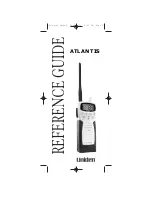
Draft - 1 Aug 08
How the QT Analysis Algorithm Works
7-18
ST/AR Arrhythmia Monitoring
How the QT Analysis Algorithm Works
The Information Center measures the QT values once every minute during
startup. Subsequently, the Information Center updates the QT values every five
minutes. Normal or atrial paced beats and beats with a similar morphology are
averaged to form a representative waveform for further processing. Normal
beats followed by a premature QRS will be excluded from the measurements to
prevent the premature beat from obscuring the end of the T-wave. If the
algorithm cannot form a representative waveform, for example because the
morphology of the beats is too varied, the Information Center generates a
Cannot Analyze QT INOP when it detects two consecutive invalid 5 minute
values. This is also the case if normal beats have been falsely labelled so that the
algorithm does not have enough valid beats to make QT measurements. No QT
value is calculated if the QT-HR is >150 bpm (Adult) or >180 bpm (Pedi/Neo).
Because of the different algorithm approaches, a QT/QTc measurement from a
diagnostic 12-lead program may differ from the realtime measurement.
For QT interval monitoring to be effective, basic or enhanced arrhythmia
monitoring must be on.
Adjusting
QT Settings
For patients being monitored by an IntelliVue Telemetry System device you can
adjust QT settings in the QT Setup window at the Information Center. If the
patient is monitored by an IntelliVue Patient Monitor, QT/QTc analysis is
provided by the IntelliVue Patient Monitor. Adjust QT settings at the bedside.
To adjust the settings at the Information Center:
Step
Action
1
Access the QT Setup window by selecting the
QT Setup
button in
the All Controls window.
2
Make the adjustments on the QT Setup window. The table below
describes each of the available adjustments.
Summary of Contents for IntelliVue TRx
Page 6: ...Draft 1 Aug 08 About this Book vi ...
Page 40: ...Draft 1 Aug 08 Accessories 2 18 Product Safety ...
Page 54: ...Draft 1 Aug 08 Audible Tones 3 14 Transceiver Controls ...
Page 74: ...Draft 1 Aug 08 Battery Information 4 20 Basic Operation ...
Page 94: ...Draft 1 Aug 08 Technical Alarms INOPs 5 20 Alarms ...
Page 152: ...Draft 1 Aug 08 How the QT Analysis Algorithm Works 7 24 ST AR Arrhythmia Monitoring ...
Page 176: ...Draft 1 Aug 08 Optimizing SpO2 Measurement Performance 8 24 SpO2 Monitoring ...
Page 236: ...Draft 1 Aug 08 Troubleshooting 11 16 Maintenance Cleaning Troubleshooting ...
Page 268: ...Draft 1 Aug 08 SpO2 Accessories A 10 Accessories ...
Page 270: ...Draft 1 Aug 08 B 2 Sales and Support Offices ...
Page 274: ...Draft 1 Aug 08 Index 4 ...
















































